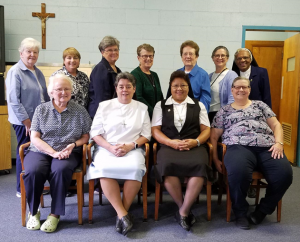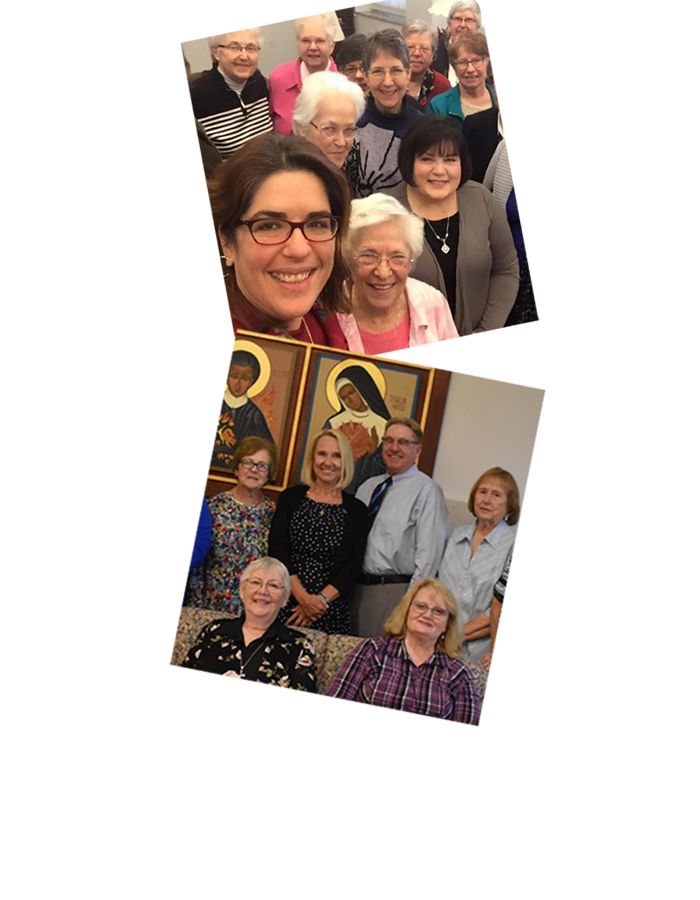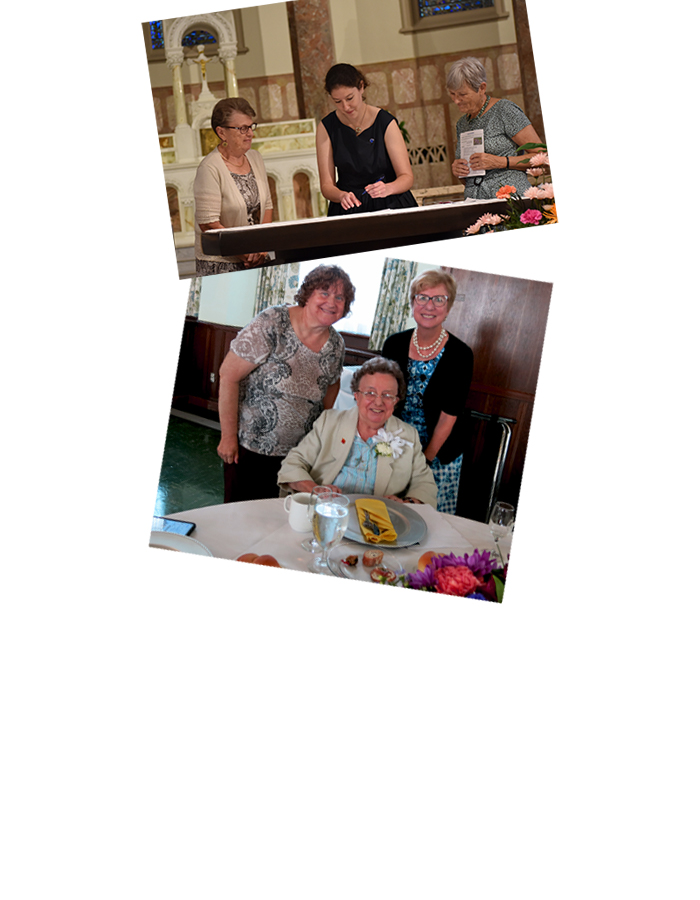The Monroe IHM community shares a common origin with three other religious communities: the Pennsylvania-based Sisters, Servants of the Immaculate Heart of Mary of Scranton; Sisters, Servants of the Immaculate Heart of Mary in Immaculata; and the Oblate Sisters of Providence in Baltimore.
 For the past several years, these four communities have made a commitment to reconnect and envision a common future.
For the past several years, these four communities have made a commitment to reconnect and envision a common future.
Formation Gatherings
Begun by the formation directors in 2002 and endorsed by the OSP IHM Board, the formation weekend rotates venues allowing each congregation a chance to host the others on its own soil and to share its unique foundation stories, ministries and dreams for the future.
The gatherings give new members an opportunity to appreciate each congregation’s history and heritage and to step into each other’s lives for a brief space each year. More importantly, connections initiated at these gatherings often result in ongoing relationships among new members who will carry the founders’ legacies into the future.
Haiti Committee
The committee’s common desire is to widen and connect the circles of involvement of sisters, associates/companions, families, co-workers, church members and school children with the people of Haiti. The committee’s goals are to:
- Continue a partnership with the Little Sisters of St. Therese of the Child Jesus in Haiti
- Educate our sisters about the needs of Haiti
- Communicate opportunities for advocacy for Haiti
- Encourage participation in projects for Haiti
Healing Racism Committee
Prompted by the Spirit, we desire to reconnect the journey of our four congregations by participating in a process of building right relationships, healing and reconciliation in an effort to eradicate racism within ourselves, our congregations and beyond. Our goals are to:
- Continue to share the richness of our congregational histories and educate ourselves on how the dynamics of racism have shaped us as individuals and as congregations.
- Address the sin of racism by promoting systemic change within our congregational, ecclesial, and societal structures.










